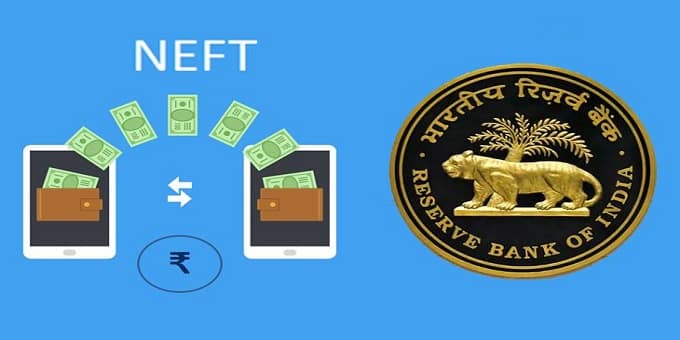On November 8, 2019, As per the report titled “Furthering Digital Payments” released by the Reserve Bank of India (RBI), Banks will not be able to charge any fee for online National Electronic Fund Transfer (NEFT) transactions done by the savings bank account customers from January 2020. With a view to promote digital transactions on the 3rd anniversary of demonetisation, the Reserve Bank has moved a proposal in this regard.

i.Digital payments accounted for 96 % of the total non-cash retail payments between October 2018 and September 2019. In the same period, the National Electronic Funds Transfer (NEFT) and Unified Payments Interface (UPI) systems have generated transactions worth Rs 252 crore and Rs 874 crore respectively. On an annual basis, their transactions have increased by 20 % and 263 % respectively.
ii.In order to increase acceptance infrastructure, RBI also plans to operationalise the ‘Acceptance Development Fund’ with effect from January 1, 2020.
iii.RBI also plans to allow all authorised payment systems and instruments (non-bank PPIs- Prepaid Payment Instruments, cards and UPI) for linking with National Electronic Toll Collection (NETC) FASTags.
iv.Background:The central Government on November 8, 2016 banned the then Rs 500 and Rs 1,000 in circulation & the RBI came out with new 2,000 and 500 currency notes.In July 2019, As per the recommendation of Nandan Nilekani-led Committee on Digital Payments panel, RBI directed banks to withdraw the charges levied on the NEFT transactions.
NEFT:
It is a payment system facilitating funds transfers from one bank account to another. One can access this service either by using Internet banking or by visiting the bank branch.It is used for upto Rs.2 lakh maintained by RBI & there is no maximum and minimum limit.